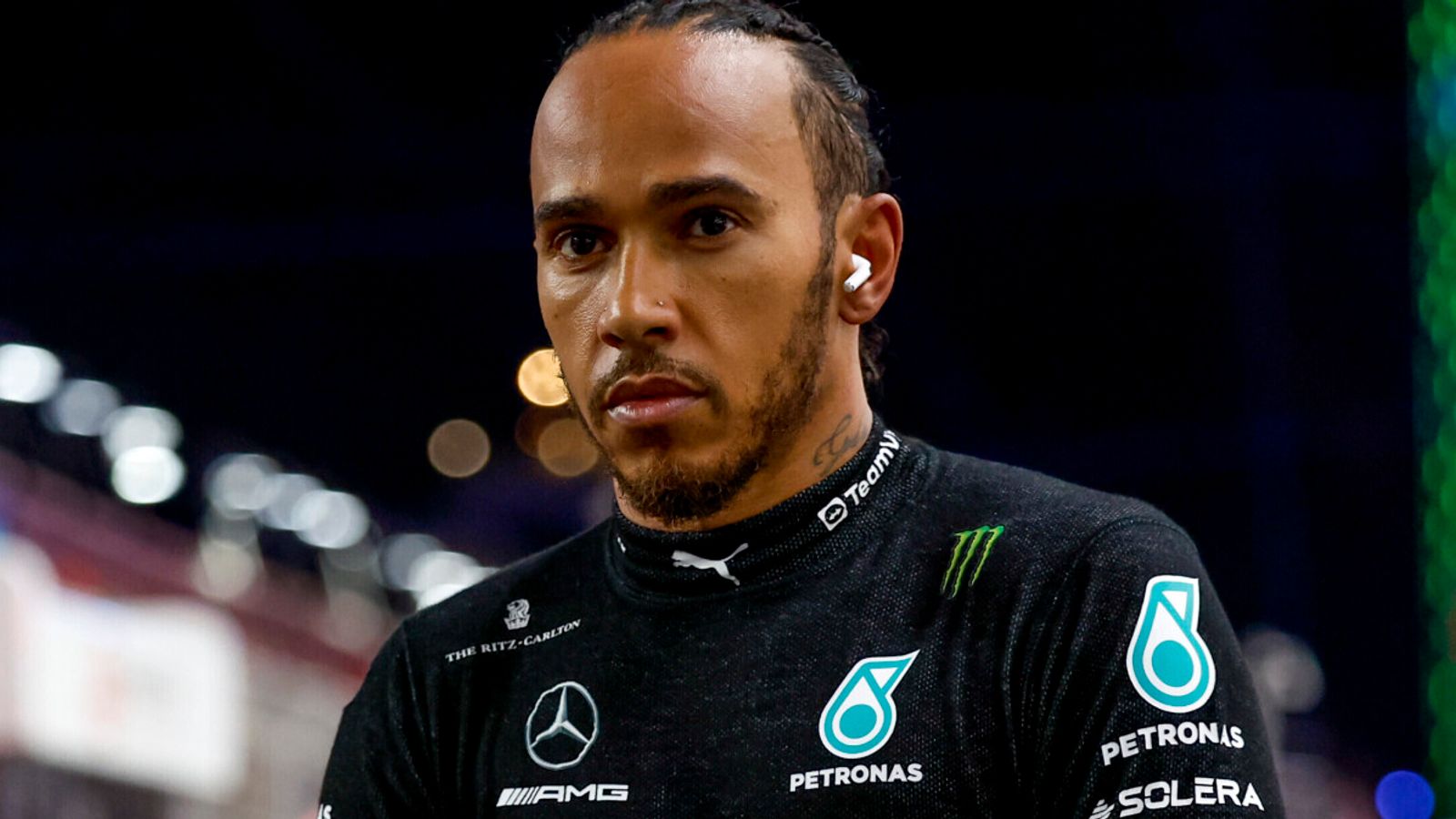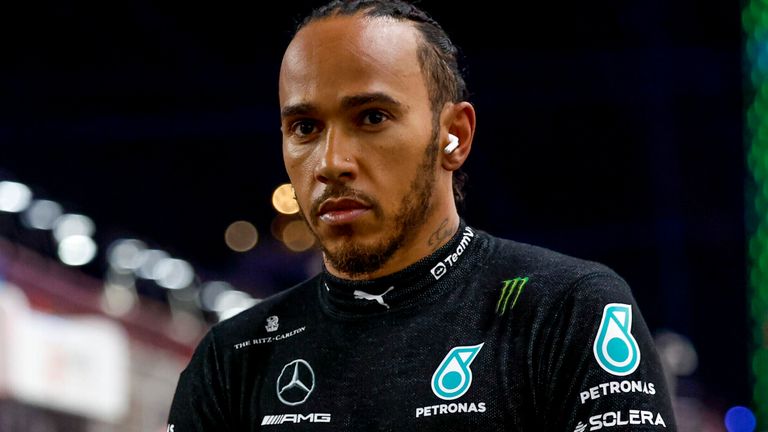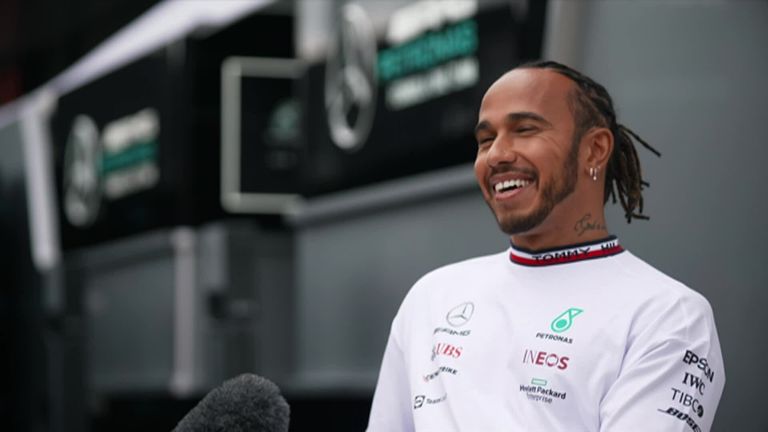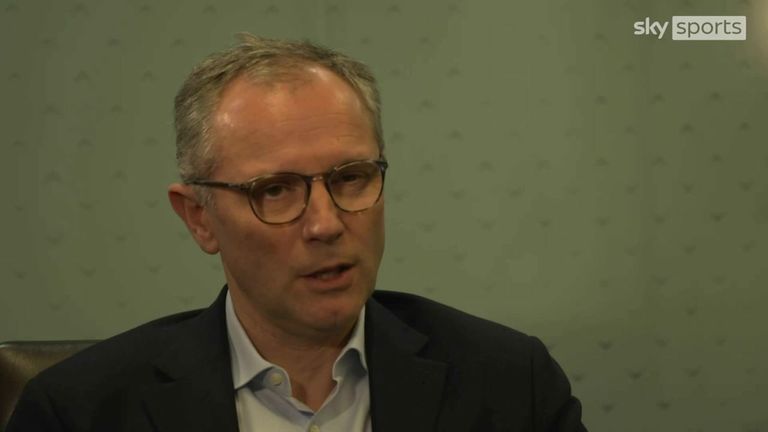
Lewis Hamilton told Sky Sports that he felt like a “lone ranger” when it came to addressing issues of diversity in Formula 1 at times but feels there is more focus on diversity and equality within the sport now
By Amar Mehta
Last Updated: 25/03/23 3:12pm

Lewis Hamilton said he felt like a ‘lone ranger’ in F1 at times
Lewis Hamilton believes diversity in F1 is not about finding the next black driver but making sure the sport is inclusive behind the scenes.
Hamilton has admitted he felt like a “lone ranger” coming up in the sport but feels great strides have been made.
The seven-time champion said change only started happening within Formula 1 in the last couple of years, describing previous attempts as a “difficult, narrow and very lonely path to walk”, and since 2021 the people running the sport are more empathetic and “more open-minded”.
Speaking to Sky Sports’ Mike Wedderburn as part of the Black In Sport Summit, Hamilton said: “When we (Hamilton and his father) got to F1, we thought we had broken the mould and thought that would change things.
“But that wasn’t enough and that is why I started the Hamilton Commission because I knew no one else cared to do the work.
“It’s not about just having access for young minorities getting access in engineering, but across the board. The higher up you go the less diverse it is, not only in our industry but through many industries.
“The goal is to shift that, and that is part of my mission. For a long time I was winning races and thinking something was missing. I feel great that I am living my purpose and starting to see that change.”
In 2019, the 38-year-old started the Hamilton Commission after noticing the lack of diversity at the end-of-season photo that year.
The commission was set up to take action and address the lack of diversity within motorsport.

In July 2017, Sky F1’s Natalie Pinkham sat down with Lewis Hamilton to reflect on his year so far and the Hamilton Commission, which aims to improve diversity in F1 and beyond
Hamilton: Commission gave me a sense of purpose
Hamilton has been championing equality in Formula 1 for several years but said at times he felt “lonely”. However, the recent focus on diversity and his work with the Hamilton Commission has given him a sense of purpose.
“There wasn’t any change until 2021 really, or at least the last couple of years where you are starting to see some change, before that I was a lone ranger and could talk on the subject as it would just be you’re the only black man. It was a difficult, narrow and very lonely path to walk,” he said.
“I feel that I am a representative for all those who feel they don’t have a voice. There are many people who feel they don’t have a voice and look at the sport and feel it isn’t for them.
“I wouldn’t say I am representing them as such, but I hope if I am, I am doing it in a positive way.”

F1 president and CEO Stefano Domenicali has previously said the sport will be shifting its anti-racism focus from ‘gesture’ to ‘action’ this year
‘Young black kids are now seeing a place for them’
While Hamilton is still the only black driver on the grid, he believes that representation is not about finding the next black driver but getting representation across the board, something which he thinks will be possible with the initiatives in place through the commission and Mission44 – a non-profit organisation aimed at creating a more inclusive society.
“It’s not about finding the next black racing driver because it’s always going to be an expensive sport and there is nothing I can do to change that,” he said.
“It’s about the thousand other jobs in the background. It should be open to anybody, no matter what your race, or what your sex. In 10 years’ time, we are going to see a much different sport because I’ll make sure of it.
“I think ultimately, unless I am part of the initiative or Michael Jordan comes in, or some other big shot becomes part of the ownership, I think it will most likely stay with the owners.
“The owners that we have, I have had deep conversations with them about the work we can do together. Young black kids are now seeing there is a place for them. Hopefully they are now seeing representation on the TV.”

